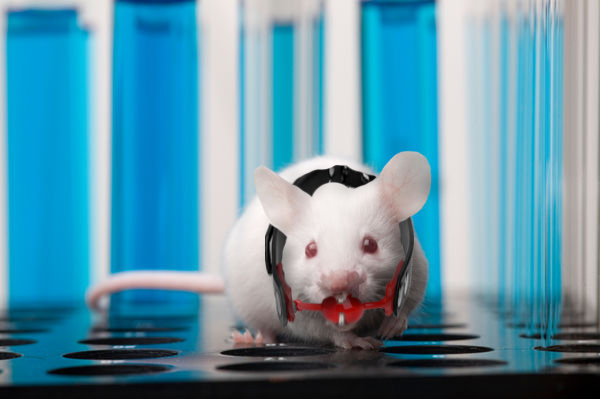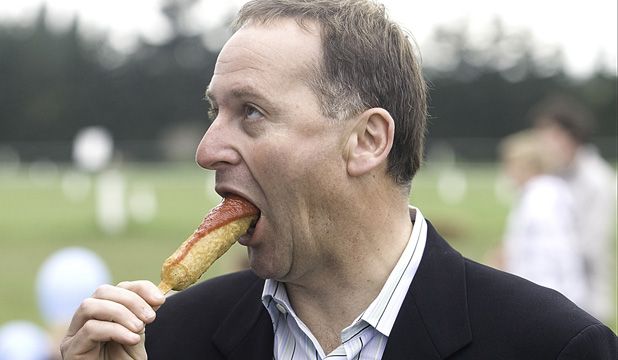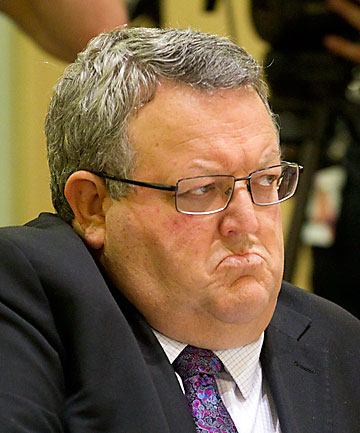There was a recent piece in New Zealand news about mass governmental censorship of scientists. Starting with apocalyptic images of the Fukushima nuclear power plant incident to instill fear, they painted a picture of mass governmental meddling with scientists reporting their results, with the clear insinuation that our lives could be at risk because of this censorship. To give you an idea of how this was an obvious piece of propaganda, they manipulated the video footage of the Fukushima reactor exploding to make it appear more like the nuclear blasts we’ve seen in the movies, adding a bright white flash that isn’t there in the raw footage . This is a classic media approach- fear gets views. But are we really in danger? Are there scientists in New Zealand right now currently aware of a cataclysmic disaster but aren’t speaking up because they have signed a non-disclosure agreement with the government or they are scared of losing their funding? I very much doubt it. In fact I think the converse is true.
First of all, let’s look at the law. Academic freedom is protected under the Education Act 1989 which states:
It is declared to be the intention of Parliament in enacting the provisions of this Act relating to institutions that academic freedom and the autonomy of institutions are to be preserved and enhanced……[including] the freedom of academic staff and students, within the law, to question and test received wisdom, to put forward new ideas and to state controversial or unpopular opinions.
That seems pretty clear right there. So what of the claims of the news piece? First the claim that in response to the botulism in our milk scare, the government signed the top scientists to a technical advisory group which wrapped them up in a non-disclosure agreement. Interestingly, the motives of the government were never discussed in the piece but the implication was that the government wanted to hide something. Perhaps hide the real science in order to continue selling poisonous milk to the Chinese? Well call me Mr. Skeptical-poopy-pants but I call BS. Put yourself in the government’s shoes. You are going to want to be advised by the best people in New Zealand to find out the truth (have we exported poisoned milk or not) so you create an advisory panel of the top scientists. Then you are not going to want the potential downfall of the New Zealand economy to be released in a tweet by one of the scientists #WeMayHaveKilledYourBaby #NewZealandIsSorry #GoTheAllBlacks. You are going to want the results of the investigation to be released by the greezy concerned face of John Key the prime minister (fig 1.). So yes, I completely understand the non-disclosure agreement and I think it had nothing to do with a cover up.
Fig. 1. The right honourable John Key
Next in the piece, there were also the results of a “survey” conducted by the New Zealand Association of Scientists that suggested that 40% of scientists said they were prevented from making a public comment on a controversial issue by management’s policy or fear of losing research funding. That seems scary right? Well let’s start with this “survey”- as a New Zealand scientist I am actually embarrassed by the scientific rigour of this survey conducted by the NZ Association of SCIENTISTS! Was is a stratified randomized sample with a high response rate? Nope… “The survey link was circulated via our twitter account and by email to all our members” and had less than 400 respondents (out of ~29,000 people who work in research in NZ). In other words the survey method was – if you can be bothered… fill this out. Which, much like a yelp review, is normally only filled out by people who have something to complain about. As discussed previously on this blog, this form of data collection is incredibly biased to the point that it is essentially useless. Not only that, the question has nothing to do with the government, it is the restriction of making public comments through the fear of losing research funding or management policy by their employer. I feel there are perfectly acceptable management policies which restrict public interactions. To start with, all private company researchers will of course be prevented from publicising their research by policy of their employer because pharmaceutical or engineering companies aren’t in the habit of spending millions or billions of dollars on a new drug or product and then releasing the details of the invention prior to copyright – “Hey Samsung, it’s Iphone, check out this prototype! Pretty sweet eh?”. Furthermore, all scientists working in the public sector who do animal experiments (which I am one), will undoubtedly – by policy- be restricted from publicising their research. This is because universities are harassed by crazy organisations like PETA for trying develop cures to horrific diseases. But fear not, the research will be in the public domain through publications in journals available through Pubmed, but just the way it is release is often restricted, it should be released in a professional respectful setting. The University of Otago probably doesn’t want to snapchat their research which involves shooting anesthetized pigs in the head. I understand this policy. The fear of losing research funding is an interesting complicated issue, but let’s just say that the people who decide whether your lab gets funding are mostly fellow scientists, it is peer reviewed, not the government or management. This has it’s issues, but is in no way a cover-up by “the man”.
The next few minutes address research which scientists published and was then discussed in an uneducated manner by John Key (fig. 1.). That wasn’t censorship, it was just embarrassing for New Zealand, because while Obama and Trudeau were pushing the need for evidence (science) based policy, John Key was saying “Yeah nah” to actual research about the state of our rivers. The last segment was a bit concerning, where academics reported being put under pressure not to discuss the risk of aftershocks following the Christchurch earthquake. While concerning, it sounds more like one moronic politician (fig. 2) than mass censorship of scientific research.
Fig. 2. Gerry Brownlee not eating a hotdog
A much bigger global problem is that scientists have to published. In my opinion we don’t have a censorship issue, we have a …. publicly-publish-several-times-a-year-about-your-amazing-research problem. There is a saying in science “publish or perish”, which basically means you will lose your job if you don’t publish, particularly in the early to mid stages of your career (like me – yay). To get published in a good journal your discovery has to be new, sexy and positive. These and a myriad of other factors creates an environment where rigorous and conservative approaches to science could result in you not publishing well and often enough to keep your job. The words “great result, let’s try it in another animal model or cell type, just to make sure” does not get said often enough. To me, the New Zealand news piece missed the real story, which is scientists are under such pressure to publicly disseminate their amazing research that the validity of the results are coming second. But perhaps why the news doesn’t report on this story is that the news is going through the same thing. Quality, rigorous and truthful journalism doesn’t get subscribers, telling them “Watching Kim Kardashian cures cancer and you won’t believe what Nicki Minaj said about Tay tay” does. It is actually depressing the parallels between the problems of the 24 hour news cycles and the problems of publish or perish science.



